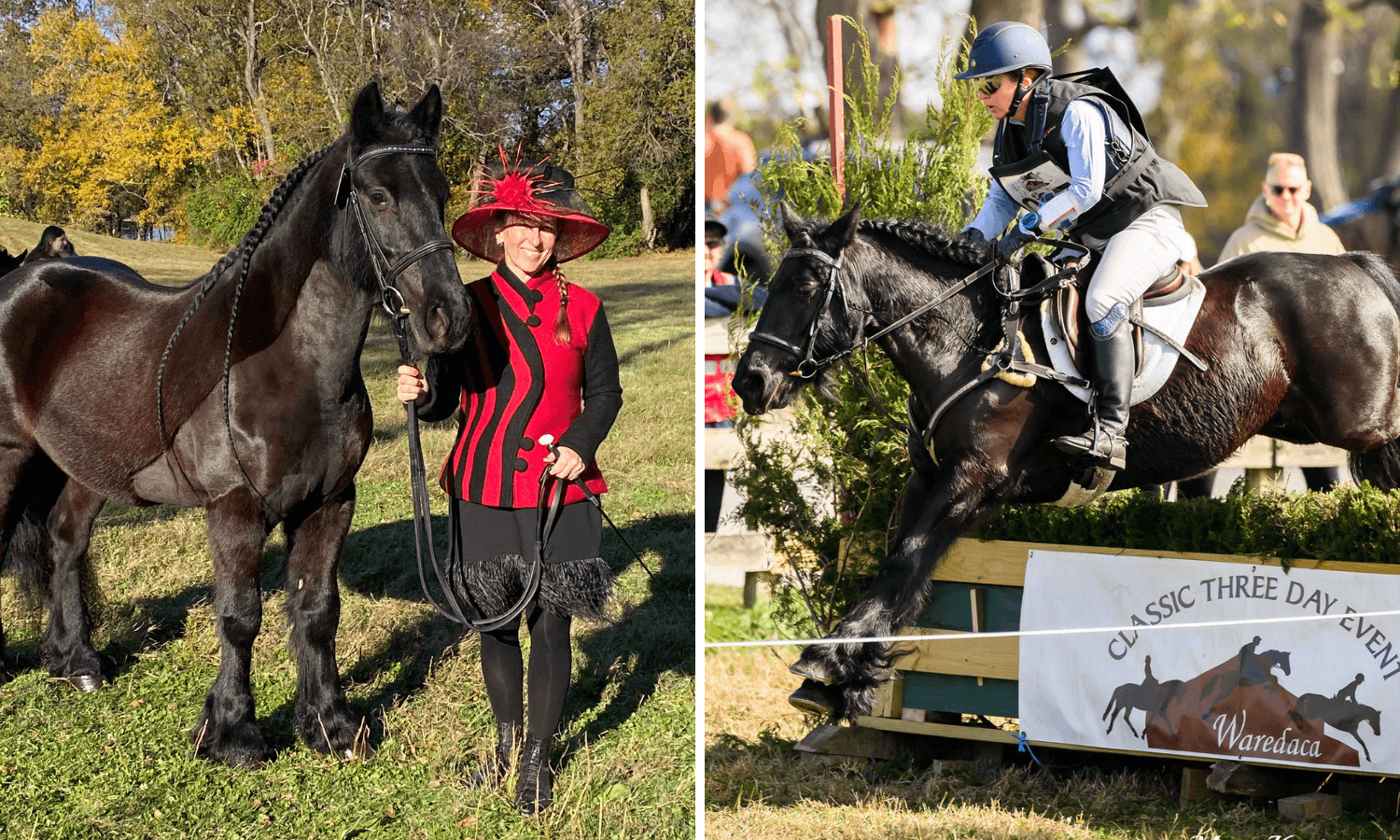Featured Clinicians: Emily Hamel and Tyler Held
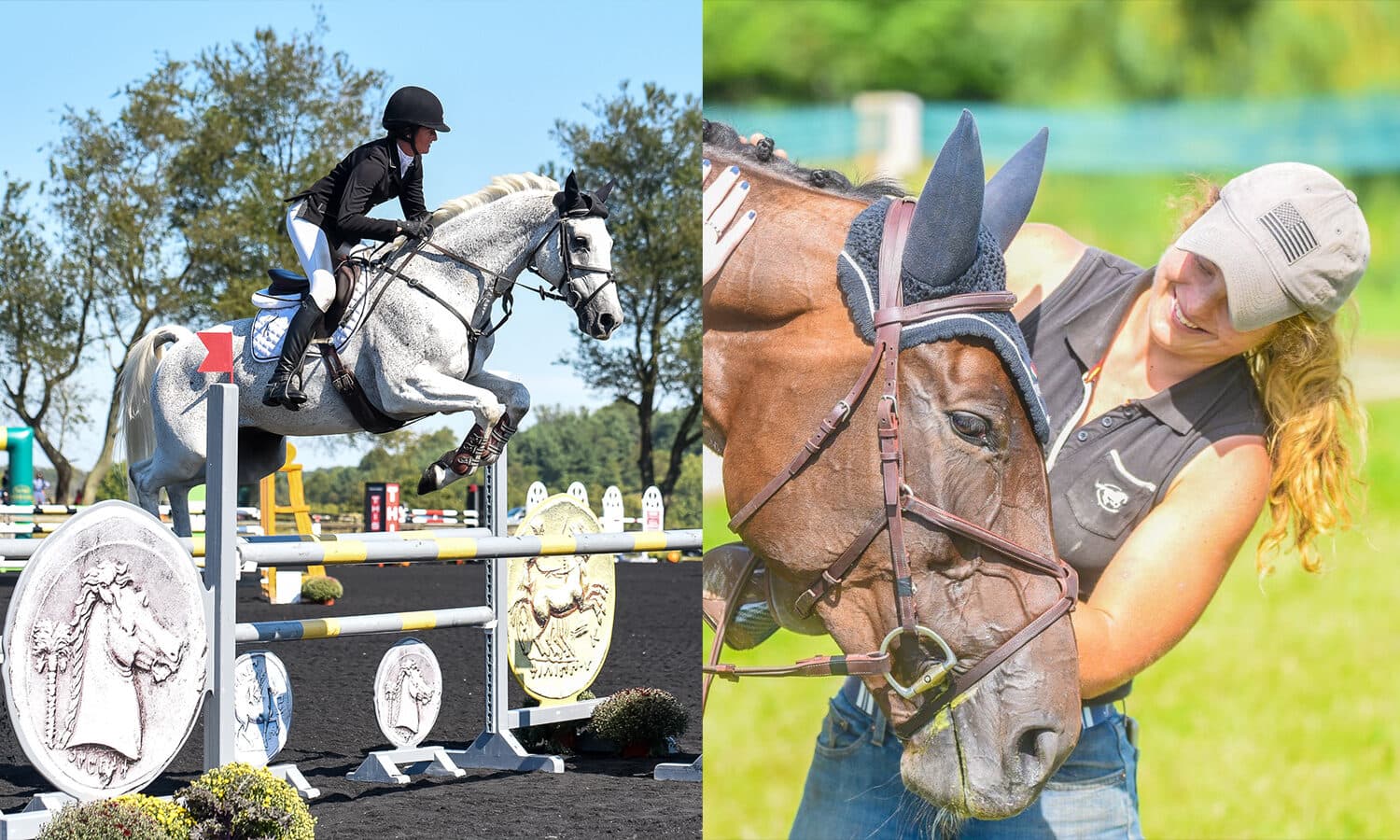
The Featured Clinician article series is provided through a partnership between STRIDER™ and the USEA.
“Health and happiness through our love of horses, that’s our mission.”
Four-star event rider Emily Hamel and FEI groom Tyler Held are committed to comprehensive enhancements for the equestrian community through their shared passion for learning, positive mindset, fitness, nutrition, and, of course, horses.
Parallel to the pursuit of their equestrian goals, this dynamic duo created The Whole Equestrian podcast in 2019. Their monthly episodes provide tips, conversations, and resources for riders at all levels. Held, in pursuit of her Ph.D. in Sports Psychology and Hamel, with eyes set on her first five-star competition, also share their expertise with riders through their popular Whole Equestrian clinic series.
“We want to get the word out there. More and more people are buying into the idea that it’s not just about riding, it’s all of the other aspects of your life as well.”
Held continues, “It’s about making people feel like they can work through things and pursue a life in this industry that’s not the overwork or burnout side.”
“When I was a working student at my first working student job, there was nobody telling me that I needed to speak up for myself and take care of myself. That lead me to a point of burnout that almost made me leave the industry, but I’m stubborn and strong-willed so I didn’t. Being able to provide a resource to people that want to make good things happen in this industry and make it a healthy place to be.”
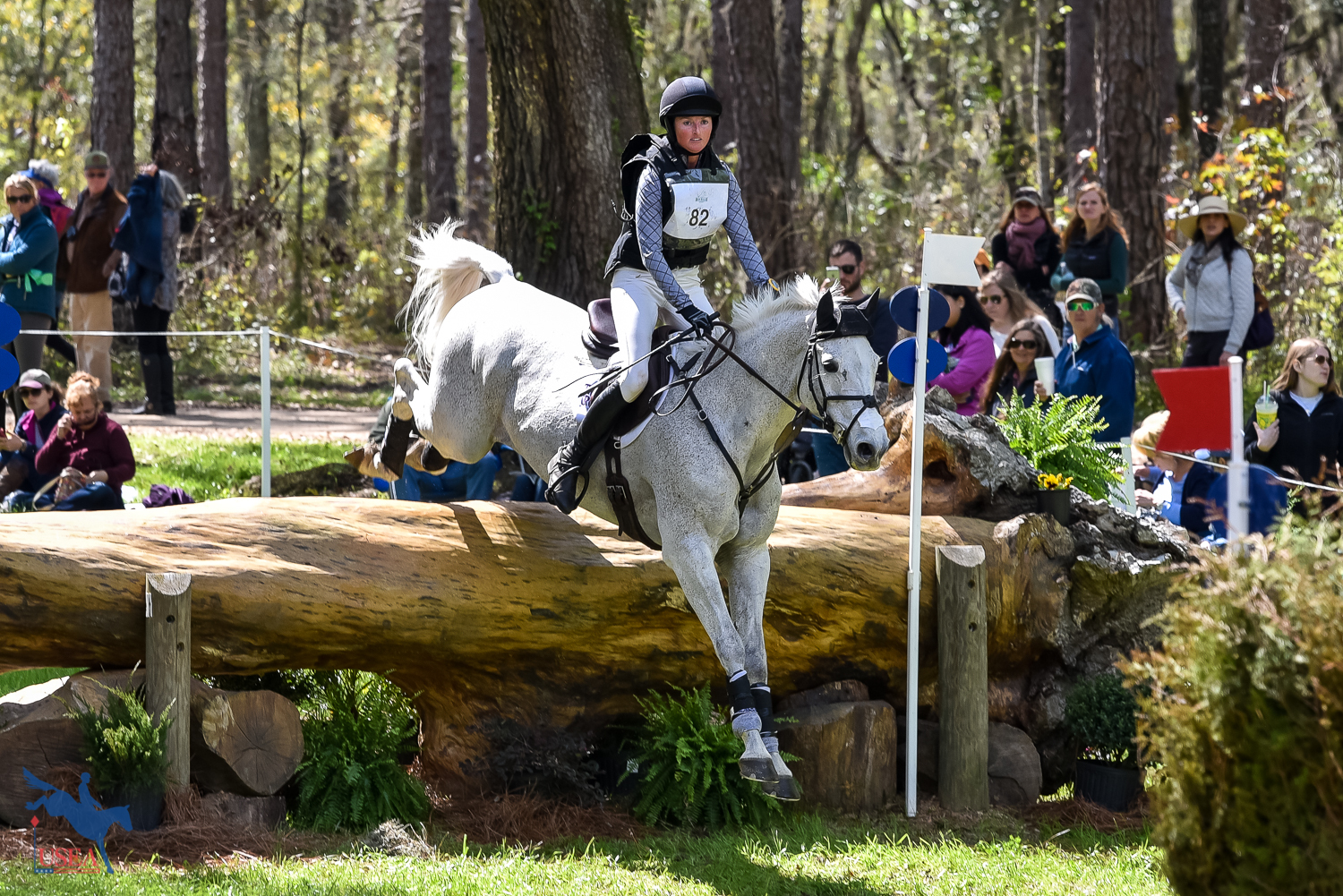
The Whole Equestrian seeks to provide insights to help riders strike a better balance in all aspects of their lives to improve their equestrian endeavors.
“It’s so important to know when it’s okay to be working that hard and also when you need to back off,” adds Hamel.
Between them, Hamel and Held have a great deal of experience across many corners of the industry and know a thing or two of hard work. Raised in Wisconsin, Hamel grew up riding on her family’s farm. She studied business at the University of Wisconsin and later moved to Kentucky for a riding and training job where she developed a number of upper-level horses. Held grew up in Maryland and started riding at a summer camp, graduated high school early to take a working student position, competed through Training level and then studied Animal Science and Equine Business Management at the University of Findlay before completing her master’s degree.
Their paths first crossed in Pennsylvania when Held was a vet tech for Sports Medicine Associates of Chester County under Kevin Keane and Hamel was Head Rider for Phillip Dutton.
“We took a walk in Hitchcock Woods and that’s when we came up with The Whole Equestrian tagline: bridging the gap between riding and wellness.”
Their unique clinics provide a comprehensive and collaborative experience for riders that focuses on components of mindset coaching, fitness, nutrition, and riding.
“Learning these techniques is a bit like building the basics. Underlying it’s all the same, but you can build up from the basics,” explains Hamel.
“Even if you’ve been riding your whole life, and you’re coming to this clinic - have a beginner’s mind. Come and be prepared to learn, take it all in, and then let go of what doesn’t serve you.”
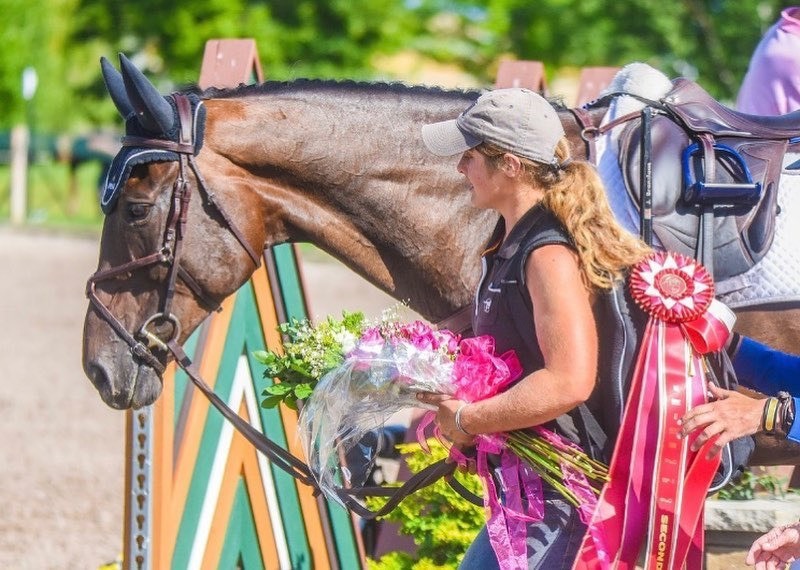
In pursuit of her doctorate, Held sees every occasion to engage riders in conversations about sports psychology as a learning opportunity.
“It’s an interesting experience for me to see how different people see different situations . . . My goal is to give riders something to walk away with, something they can put into practice right away. It’s great if I can isolate some sort of negative thought pattern and give some advice to help them transition to a more positive thought pattern.”
Hamel adds, “if you can walk away with one powerful message, technique, something like that, then I think we’ve done our job.”
“No two days or two clinics will be the same because of the group dynamic,” Hamel points out.
By capping the number of attendees per clinic at 12, Held and Hamel are able to cater to the individual needs of the riders while capitalizing on the unique nature of the community.
“Having a space where you can hear someone else have the same struggle to you or struggle differently to what you experience helps you feel more connected to your fellow equestrians,” explains Held.
“Most of my best information comes through when someone asks me a question and I get to work on the fly . . . I get really lit up in a situation where I can feel like I’m connecting with someone and pulling some sort of concept from the hours and hours I’ve spent with my nose in books. It pays off when I get to think on my feet like that.”
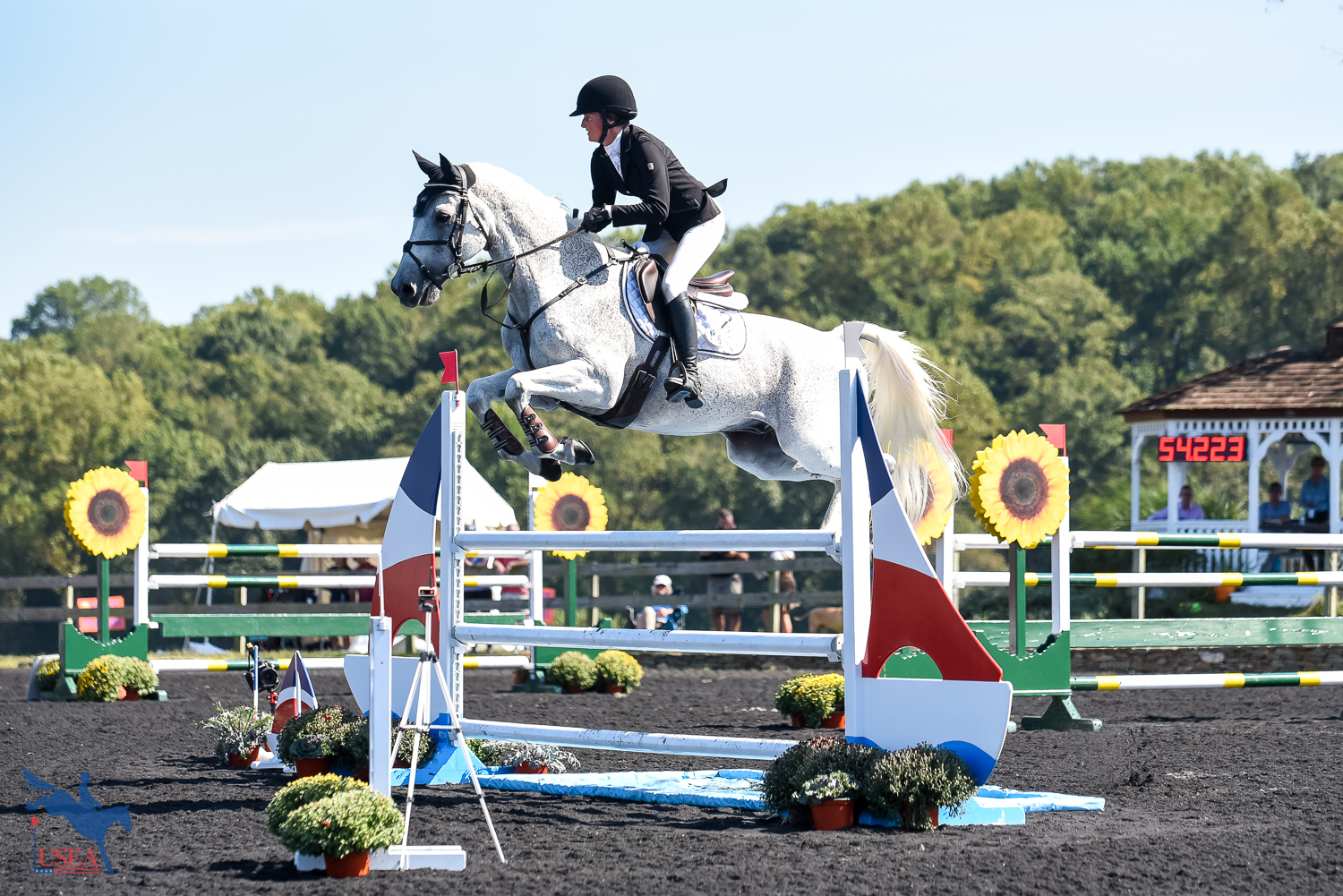
The Whole Equestrian clinics truly cover all of the aspects that bridge the gap between riding and wellness. Riders begin with a mental toughness discussion that encapsulates key aspects of sports psychology, followed by a yoga session and then a nutritious lunch before individual mental coaching sessions and a group jump lesson.
“It’s really important for riders to take the time to work on the mental piece of riding outside of the saddle,” explains Held. “Emily [Hamel] uses some of the mental techniques that I teach all the time in her four-stars. Practicing connecting to her breath . . . it’s the same - it’s just like training a horse, it’s going to be the same from beginning to end, just different levels of complexity are added.”
The riding aspect of the clinic draws on the concepts Held and Hamel have introduced throughout the day.
“I try to encourage my students while challenging them,” says Hamel. “I like to start with a simple, but not easy exercise. Something that tests the horse’s rideability and how the rider is going to react. Some of those simple, not easy exercises trigger some emotions in people. I try to help riders tap into their breath or the feel of the horse.”
“Most people I’m teaching in a clinic setting I don’t have a lot of history with. It’s fun because it’s a new horse and a new rider. It’s like figuring out a puzzle - what is going to be the best way to bring out greatness in this pair?”
“If you are working with a student a few days a week, change and progress are there but it’s not always as dramatic or noticeable. In clinics sometimes it feels more rewarding. If I’ve done my job right, I should see a big difference from start to finish.” Laughing, Hamel adds - “While that’s not always the case, I tend to see a noticeable difference from start to finish.”
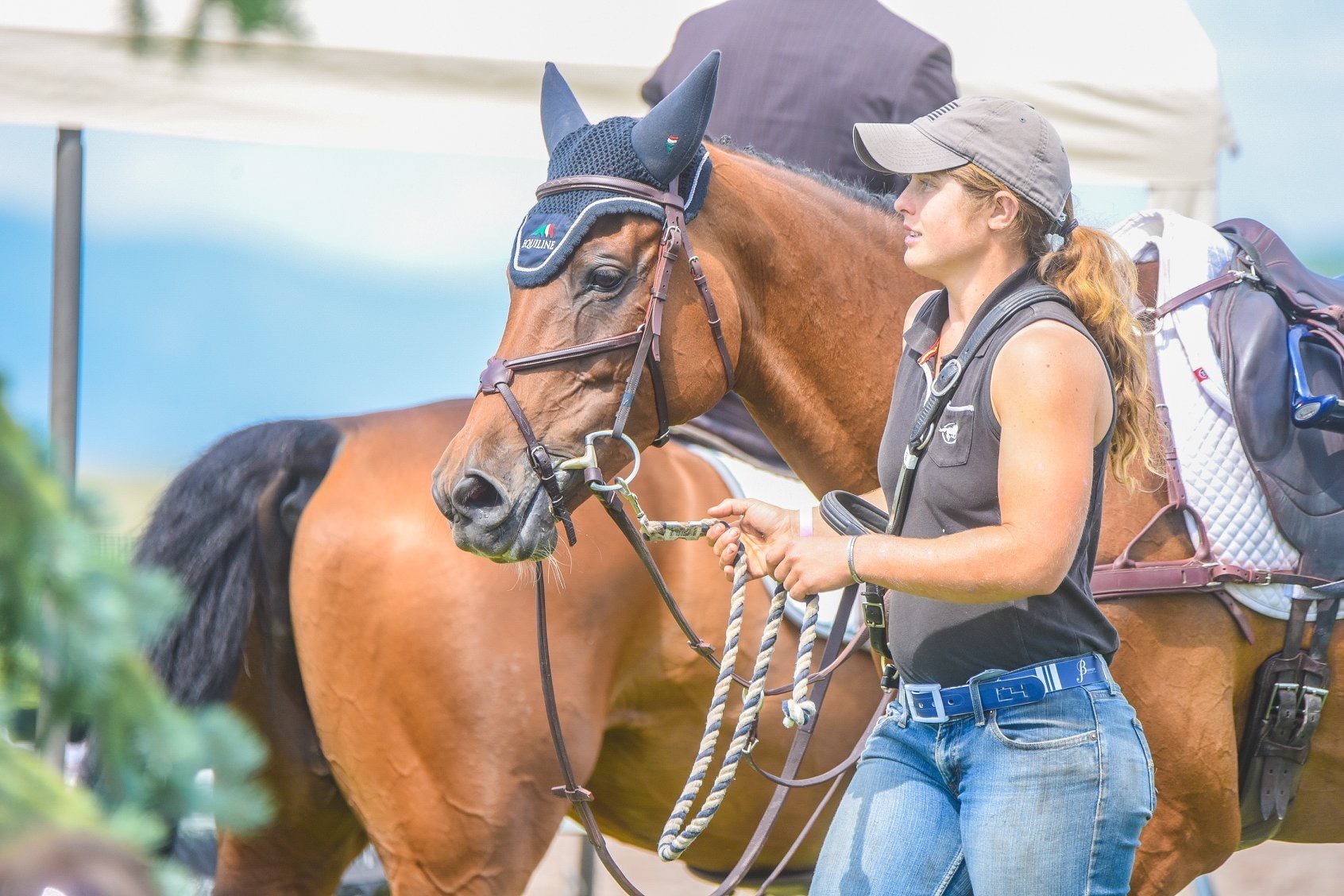
Through their clinics and with the podcast, Hamel and Held hope to help strengthen community ties for riders. Both are very aware that it takes a village to make it in the equestrian industry.
“You have to have a really great team, you have to have people who will stand behind you,” Held explains. “Sometimes, I think trying to be a professional groom while getting my doctorate degree, that’s insane! But I have an amazing group of people behind me who believe in me.”
“My dad is a huge influence. He always told me to put my head down, not sweat the small stuff, work hard, be good, and make connections; that will take you where you want to go.”
Hamel has a great village, too. “My mom has been my biggest supporter, cheerleader, and person who leads by example.”
“She has always encouraged me to do what I love, and the money will follow. As scary as that sounds sometimes, especially when you are actually an adult - it always works out. If you do what you love and you’re authentic about it and you put yourself out there the universe works in your favor. She has taught me to have an amazing work ethic and be kind.”
“Working for Phillip for a lot of years taught me the riding skills and all of that is also super needed in my career. He has been wonderful, really showed me how to make it at the upper levels and what’s needed to have high-performance horses.”
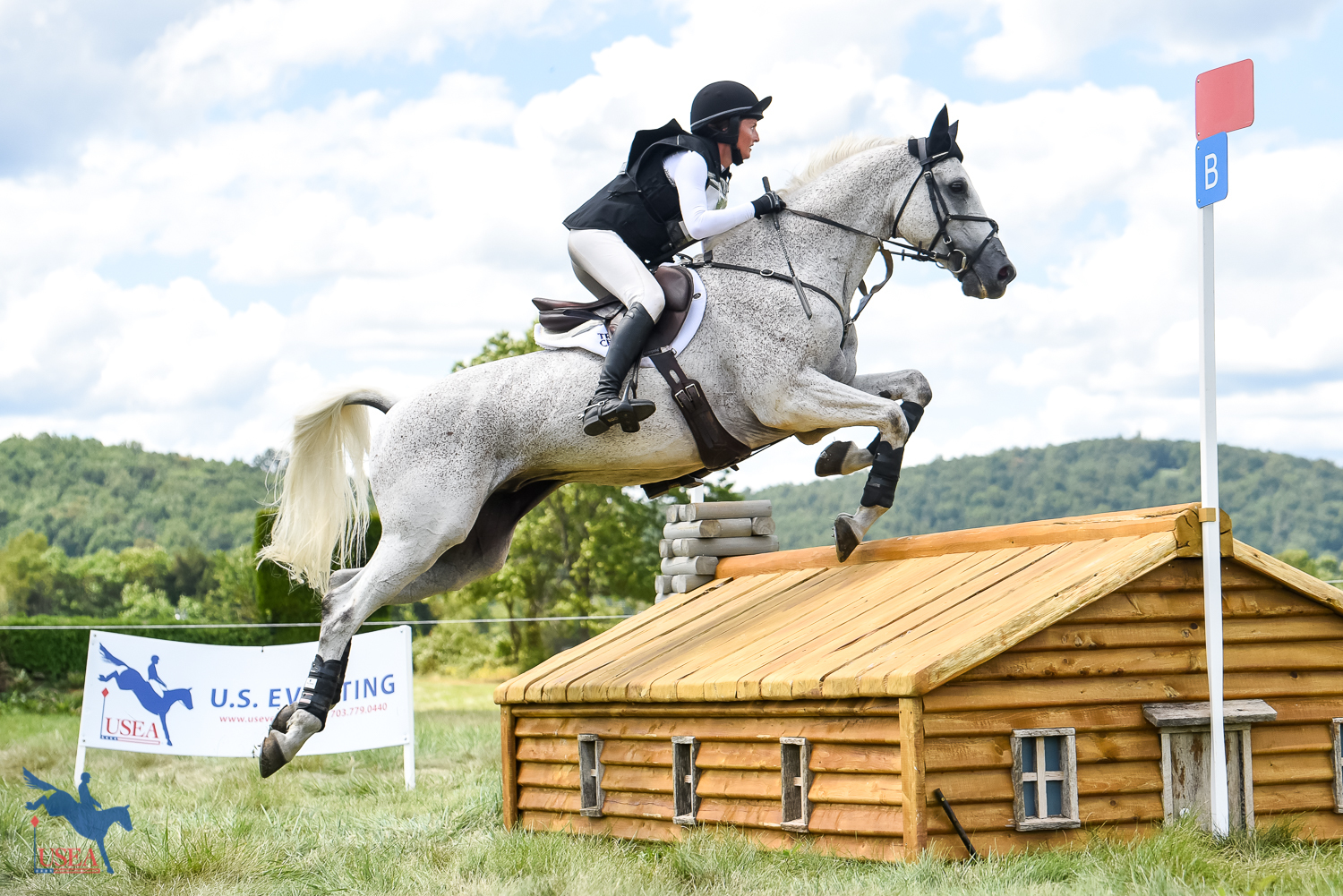
There was a time, though, when Hamel was on the fence about moving from Kentucky to Pennsylvania to work for Dutton, as she would have to leave clients behind and knew big changes could present big challenges.
“I was game, knew that’s what I needed to do to get where I wanted to go. [My friend] said, ‘If you’re going to do this, you need to commit 100 percent. If you go in at 50 percent the move across the country and all of this stuff is not going to go work out. You’ve got to give it at least a year and just commit.’ And, I did - and I just kept going.”
“When you have a good group of people behind you that you can trust then you can take time for yourself. You can have interests other than horses. Horses are fabulous, our lives revolve around them, but horses are heartbreakers sometimes. If all of your everything is put into that and you don’t have anything else to go to it can be more devastating. If you have some other outlets for your energy and other interests and hobbies it can keep you going through the hard times,” says Hamel.
Both Hamel and Held practice what they preach. While Held is a Brazilian Jiu-Jitsu enthusiast, Hamel is a dedicated yoga practitioner currently enrolled in a yoga teacher training program.
“You can have anything you want, you just can’t have everything you want. Focus in on the really important things you want to do with your life, there’s always going to be a way to make it a possibility,” says Held.

Head to STRIDER™ for more details and simple online registration for the upcoming Whole Equestrian Clinic later this year. All of the latest episodes of The Whole Equestrian Podcast are released monthly on ApplePodcasts, GooglePlay, and Soundcloud. To connect with Emily Hamel and Tyler Held, follow @thewholeequestrian on Instagram and Facebook.
Check out Emily and Tyler's presentation from the 2019 USEA Annual Meeting & Convention!


